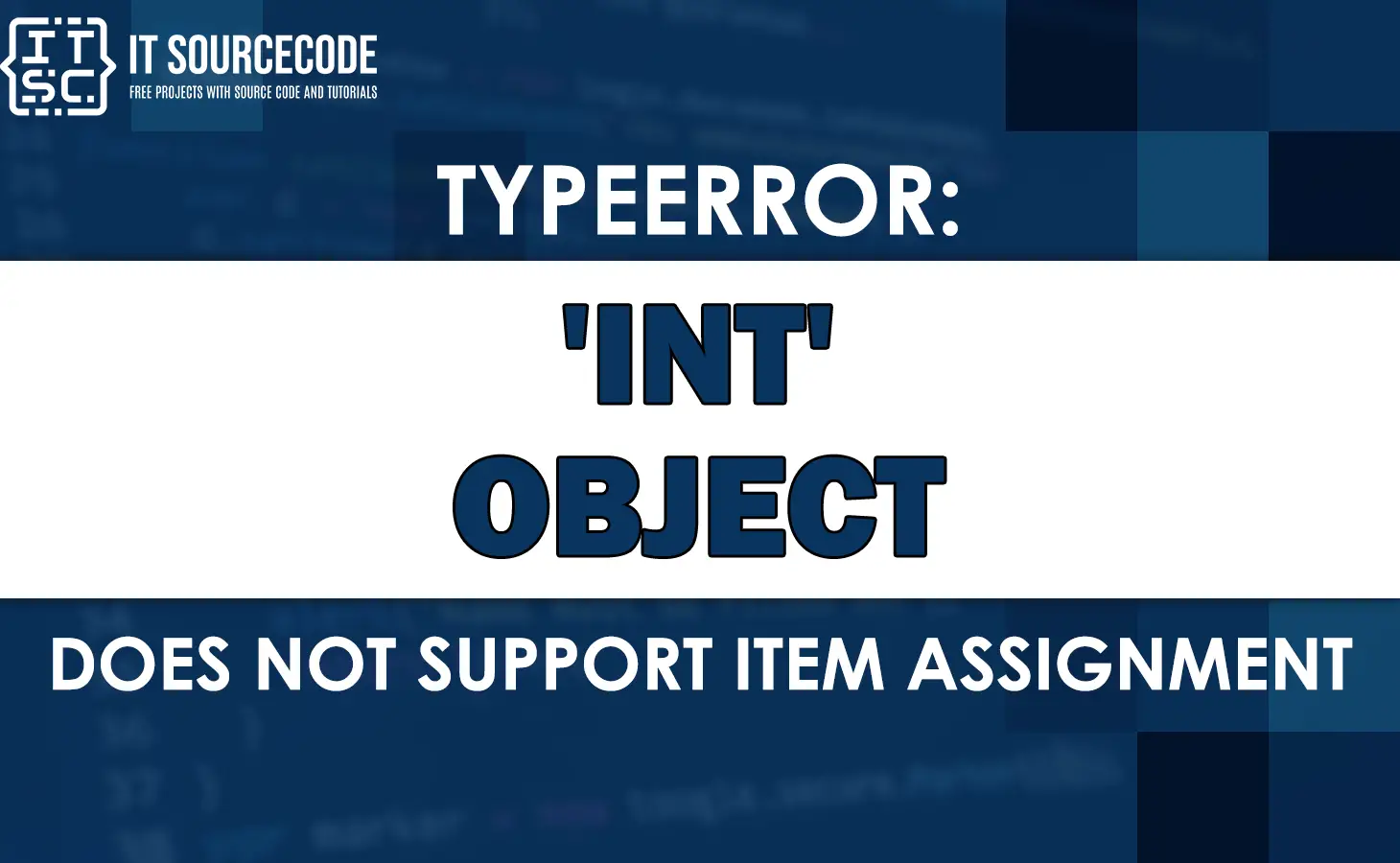Today, we will explore the “typeerror: int object does not support item assignment” error message in Python.
If this error keeps bothering you, don’t worry! We’ve got your back.
In this article, we will explain in detail what this error is all about and why it occurs in your Python script.
Aside from that, we’ll hand you the different solutions that will get rid of this “typeerror: ‘int’ object does not support item assignment” error.
What is “typeerror: ‘int’ object does not support item assignment”?
The “typeerror int object does not support item assignment” is an error message in Python that occurs when you try to assign a value to an integer as if it were a list or dictionary, which is not allowed.
It is mainly because integers are immutable in Python, meaning their value cannot be changed after they are created.
In other words, once an integer is created, its value cannot be changed.
For example:
sample = 12345
sample[1] = 5
In this example, the code tries to assign the value 1 to the first element of sample, but sample is an integer, not a list or dictionary, and as a result, it throws an error:
TypeError: 'int' object does not support item assignmentThis error message indicates that you need to modify your code to avoid attempting to change an integer’s value using item assignment.
What are the root causes of “typeerror: ‘int’ object does not support item assignment”
Here are the most common root causes of “int object does not support item assignment”, which include the following:
- Attempting to modify an integer directly
- Using an integer where a sequence is expected
- Not converting integer objects to mutable data types before modifying them
- Using an integer as a dictionary key
- Passing an integer to a function that expects a mutable object
- Mixing up variables
- Incorrect syntax
- Using the wrong method or function
How to fix “typeerror: int object does not support item assignment”
Here are the following solutions to fix the “typeerror: ‘int’ object does not support item assignment” error message:
Solution 1: Use a list instead of an integer
Since integers are immutable in Python, we cannot modify them.
Therefore, we can use a mutable data type such as a list instead to modify individual elements within a variable.
sample = [1, 2, 3, 4, 5]
sample[1] = 2
print(sample)
Output:
[1, 2, 3, 4, 5]Solution 2: Convert the integer to a list first
You have to convert the integer first to a string using the str() function.
Then, convert the string to a list using the list() function.
We can also modify individual elements within the list and join it back into a string using the join() function.
Finally, we convert the string back to an integer using the int() function.
sample = list(str(12345))
sample[1] = '2'
sample = int(''.join(sample))
print(sample)Output:
12345Solution 3: Use a dictionary instead of an integer
This solution is similar to using a list. We can use a dictionary data type to modify individual elements within a variable.
sample = {'a': 1, 'b': 2, 'c': 3, 'd': 4, 'e': 5}
sample['e'] = 10
print(sample)
In this example code, we modify the value of the ‘b’ key within the dictionary.
Output:
{'a': 1, 'b': 2, 'c': 3, 'd': 4, 'e': 10}
Another example:
my_dict = {1: 'itsourcecode', 2: 'proudpinoy', 3: 'englishtutorhub'}
my_dict[1] = 'code'
print(my_dict[1])
Output:
codeSolution 4: Use a different method or function
You can define sample as a list and append items to the list using the append() method.
For example:
sample = [1, 2, 3, 4, 5] sample.append(6) print(sample)
Output:
[1, 2, 3, 4, 5, 6]How to avoid “typeerror: int object does not support item assignment”
- You have to use appropriate data types for the task at hand.
- You must convert immutable data types to mutable types before modifying it.
- You have to use the correct operators and functions for specific data types.
- Avoid modifying objects directly if they are not mutable.
Frequently Asked Question (FAQs)
You can easily resolve the error by converting the integer object to a mutable data type or creating a new integer object with the desired value.
The error occurs when you try to modify an integer object, which is not allowed since integer objects are immutable.
Conclusion
By executing the different solutions that this article has already given, you can definitely resolve the “typeerror: int object does not support item assignment” error message in Python.
We are hoping that this article provides you with sufficient solutions.
You could also check out other “typeerror” articles that may help you in the future if you encounter them.
- Uncaught typeerror: illegal invocation
- Typeerror slice none none none 0 is an invalid key
- Typeerror: cannot read property ‘getrange’ of null
Thank you very much for reading to the end of this article.

